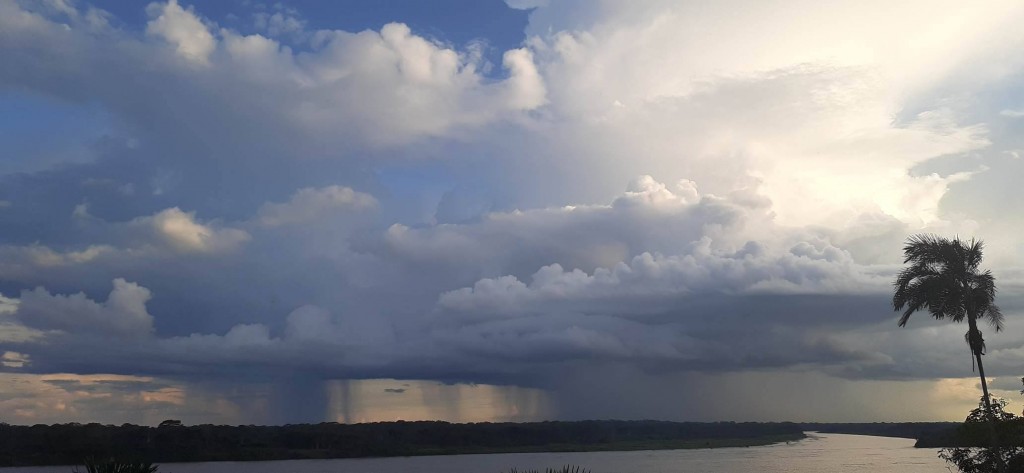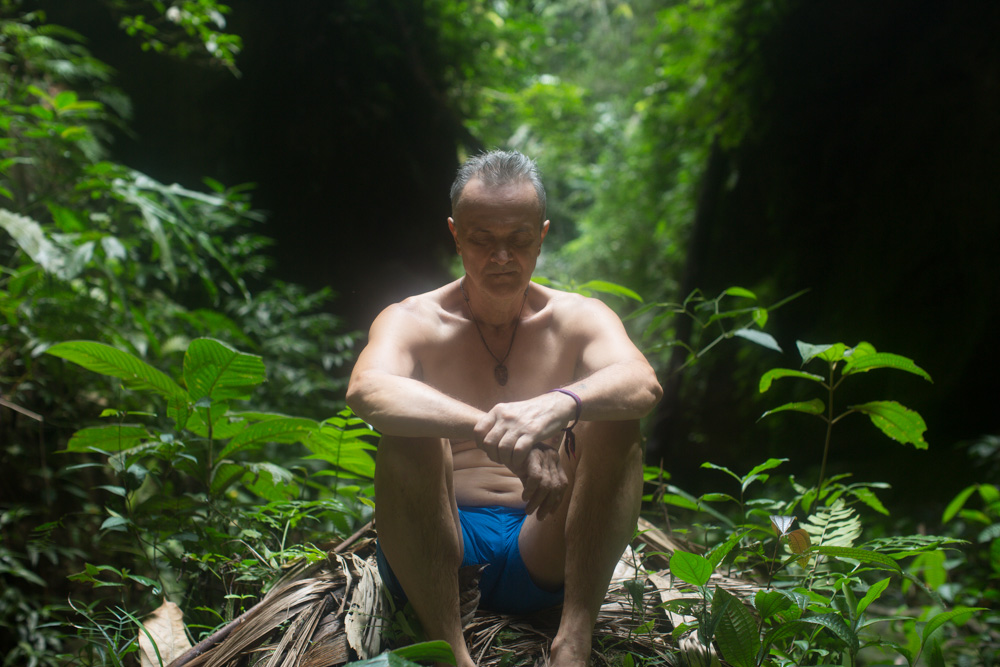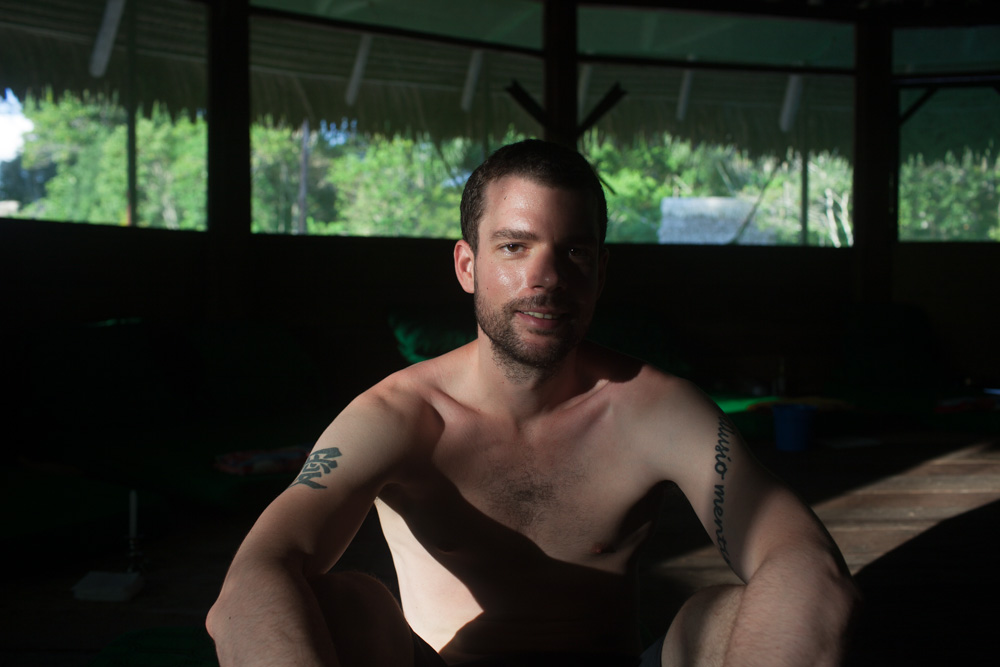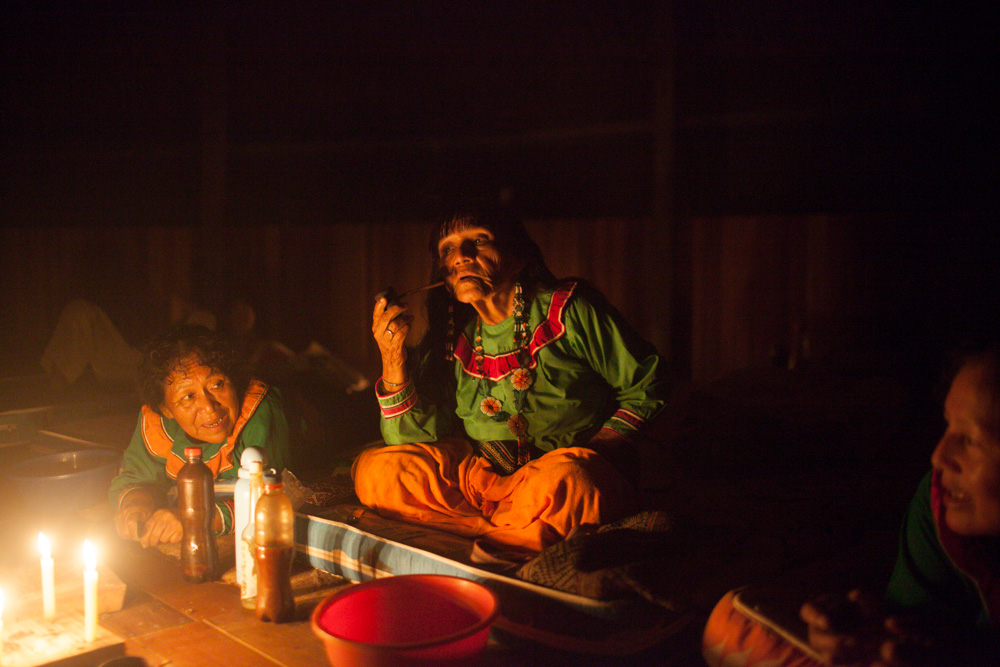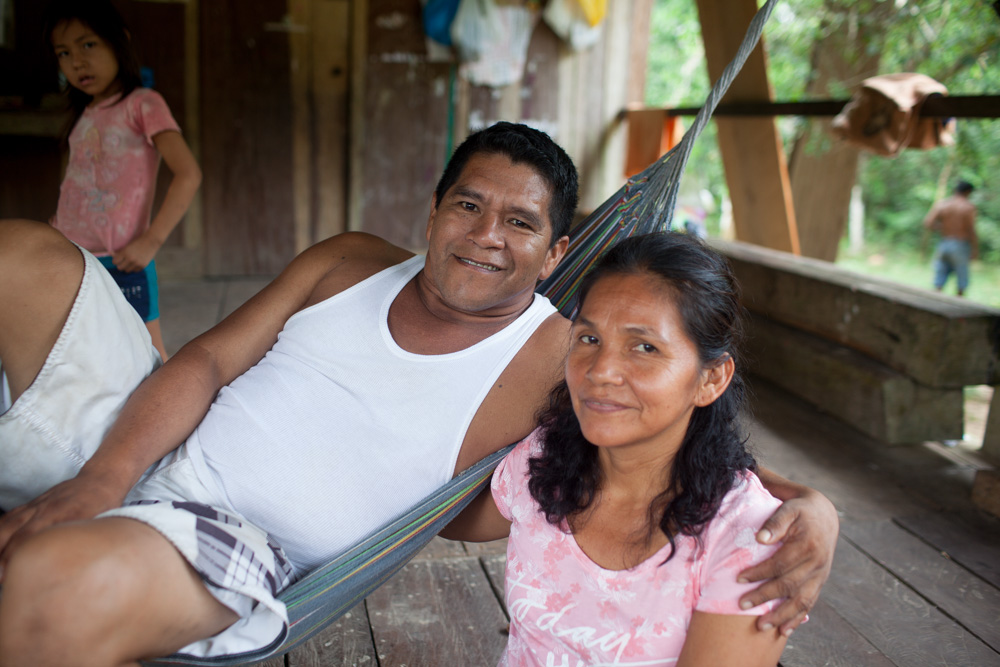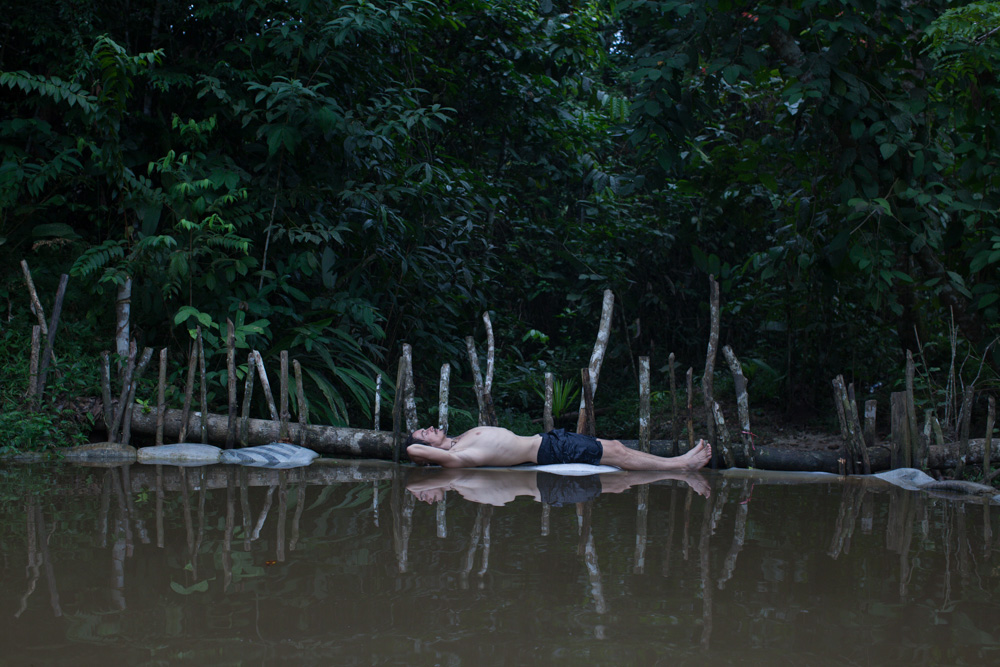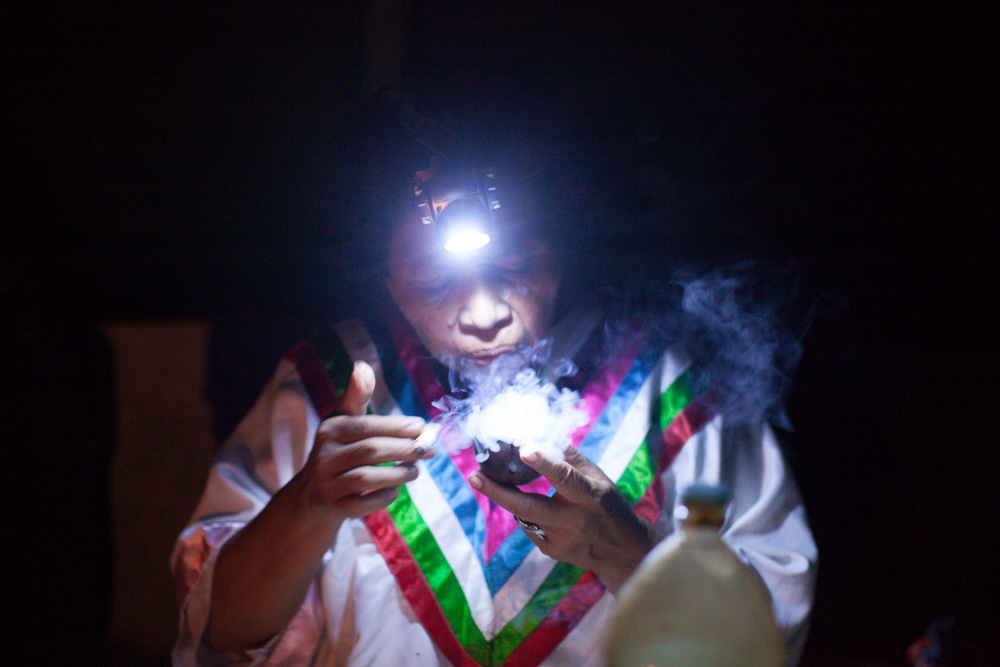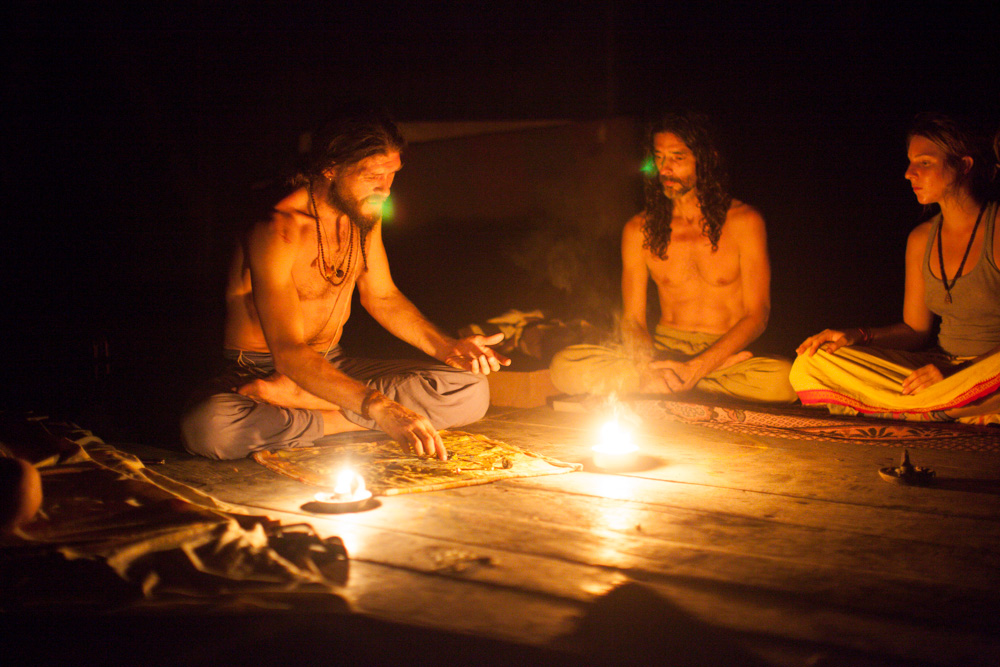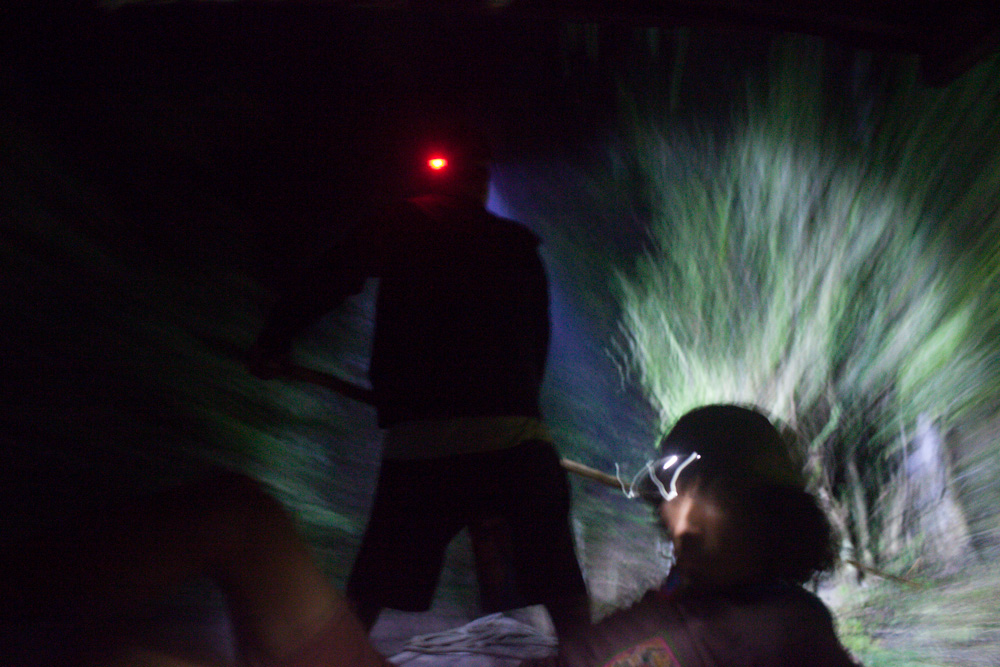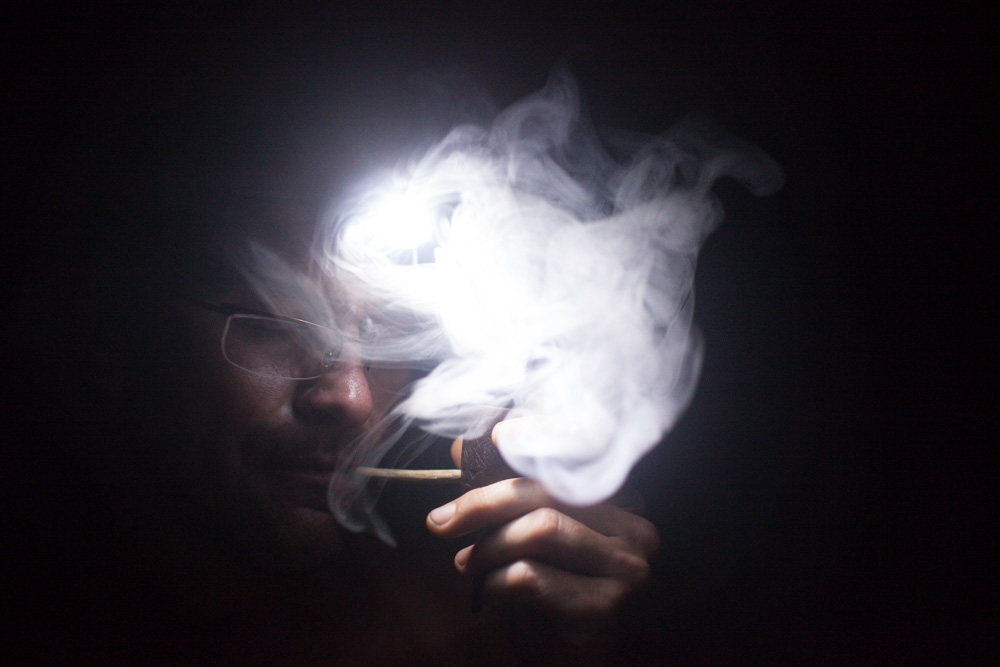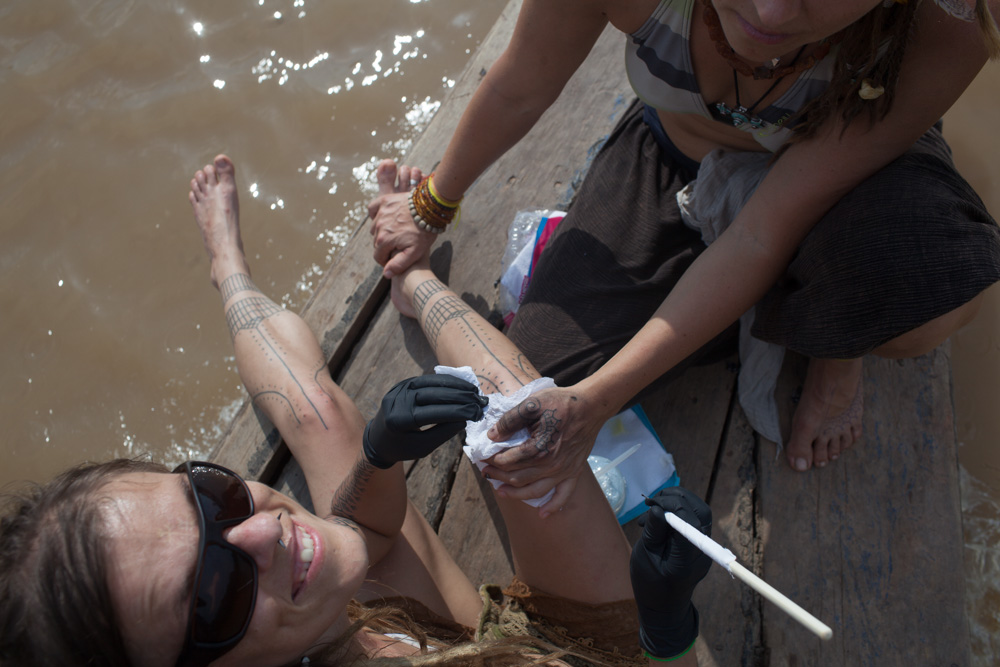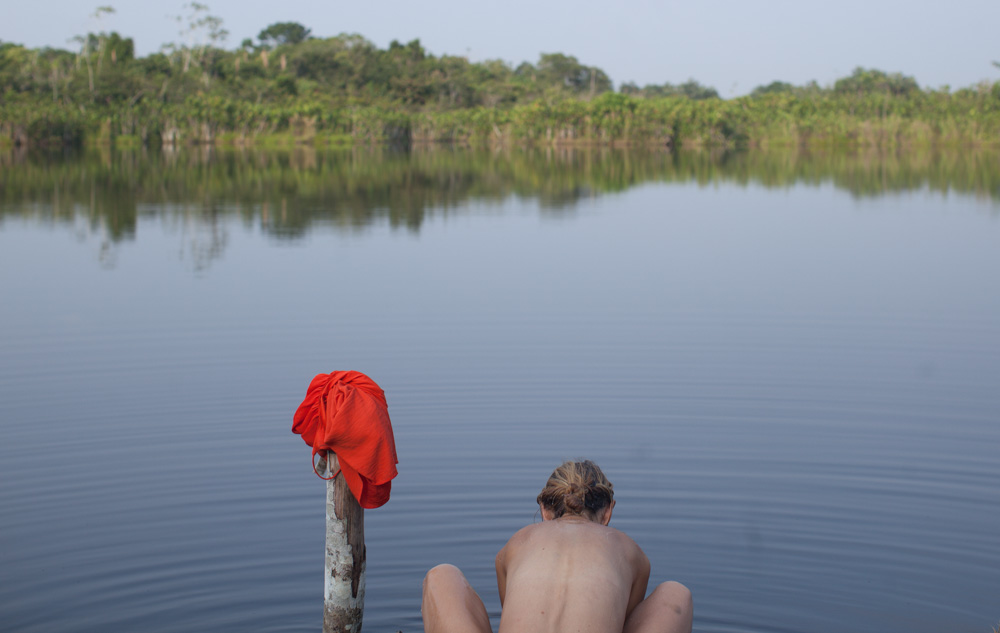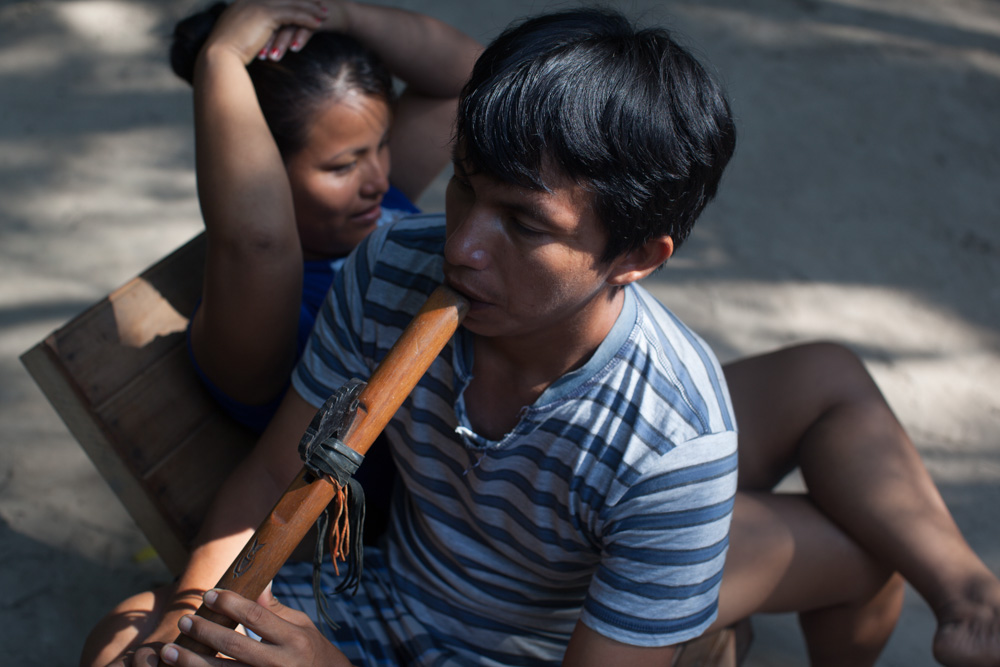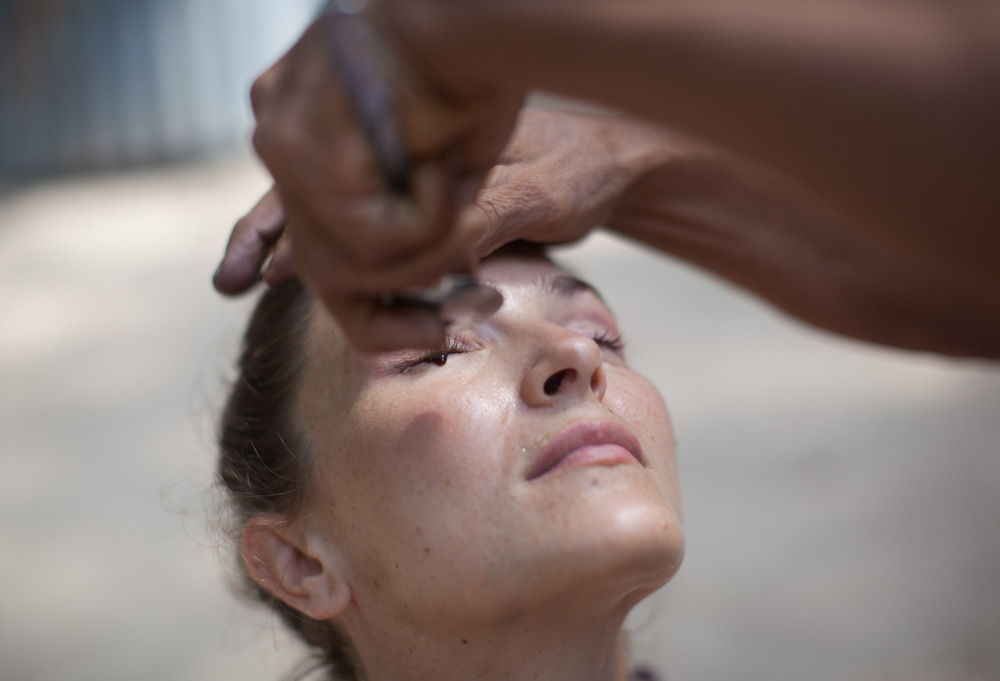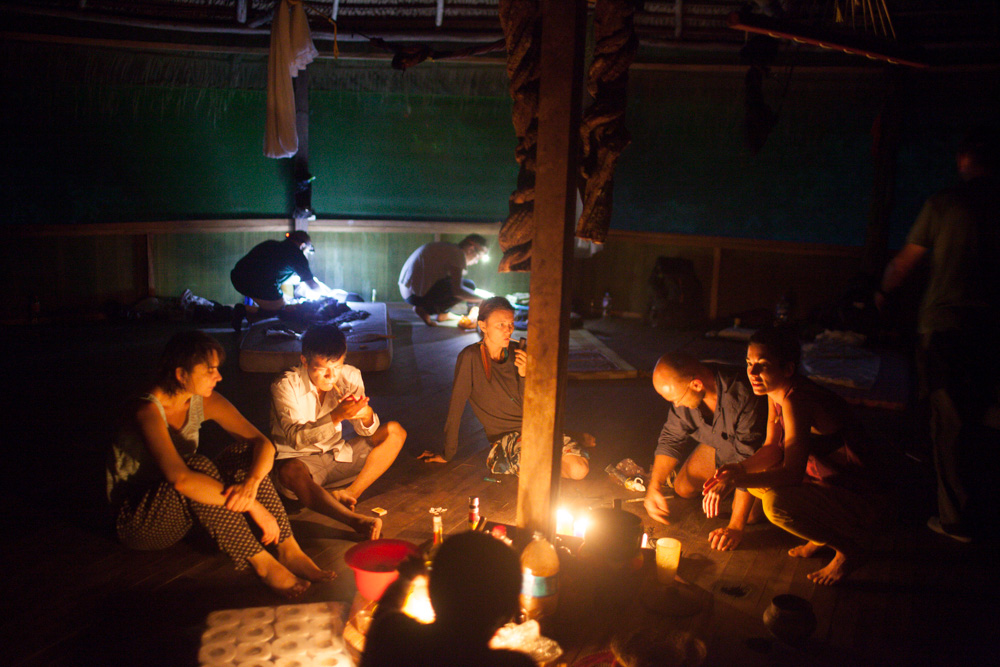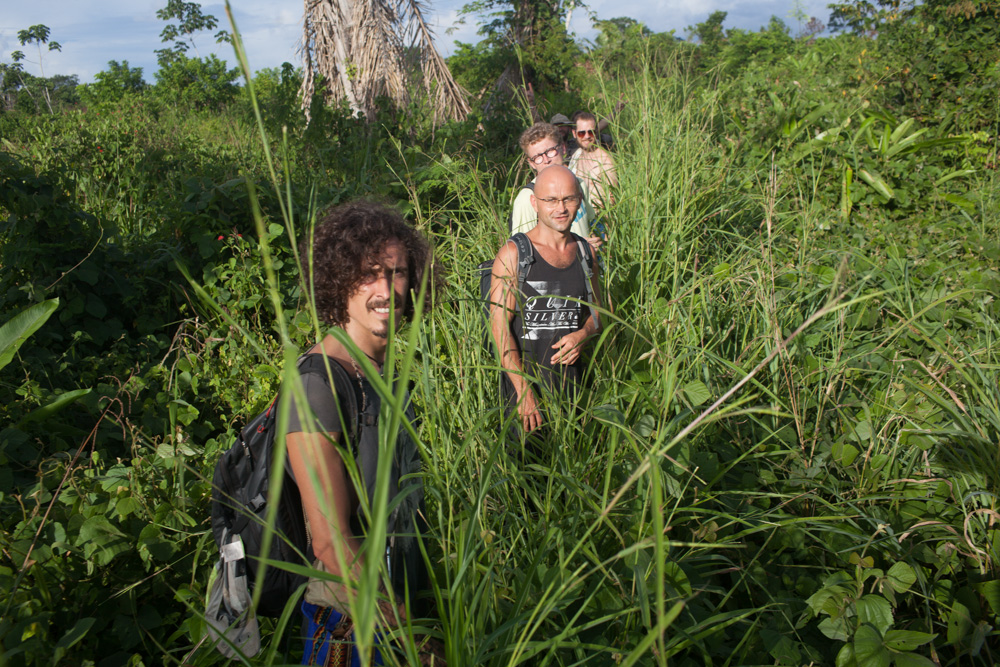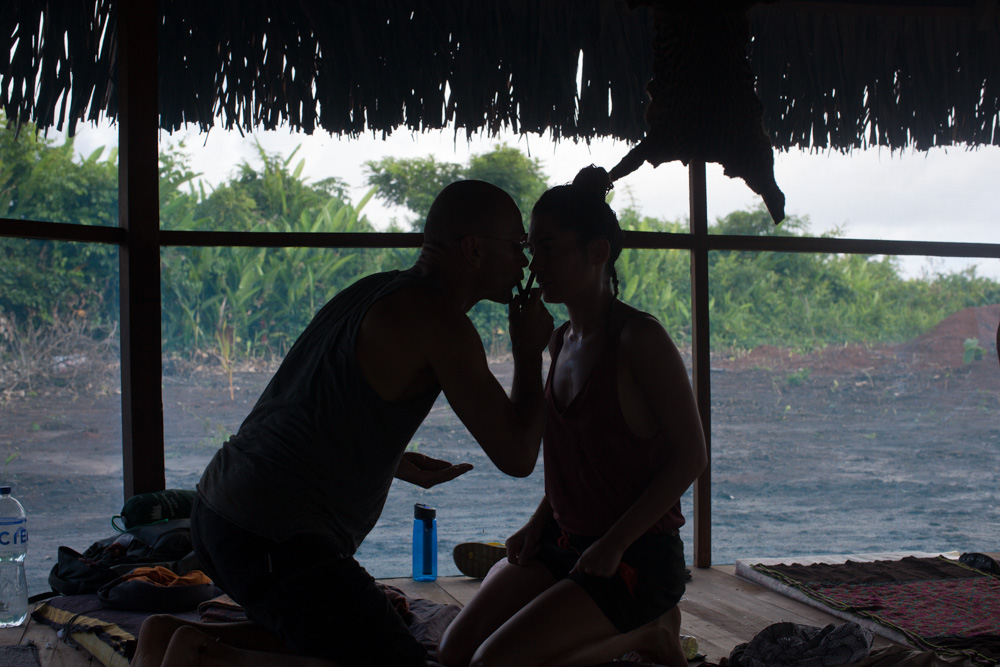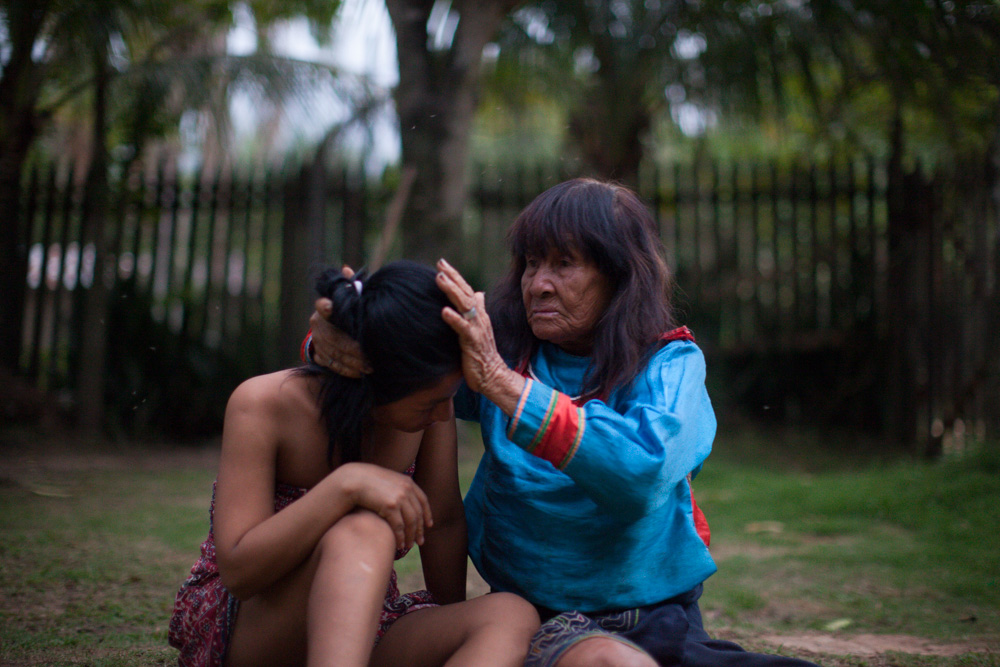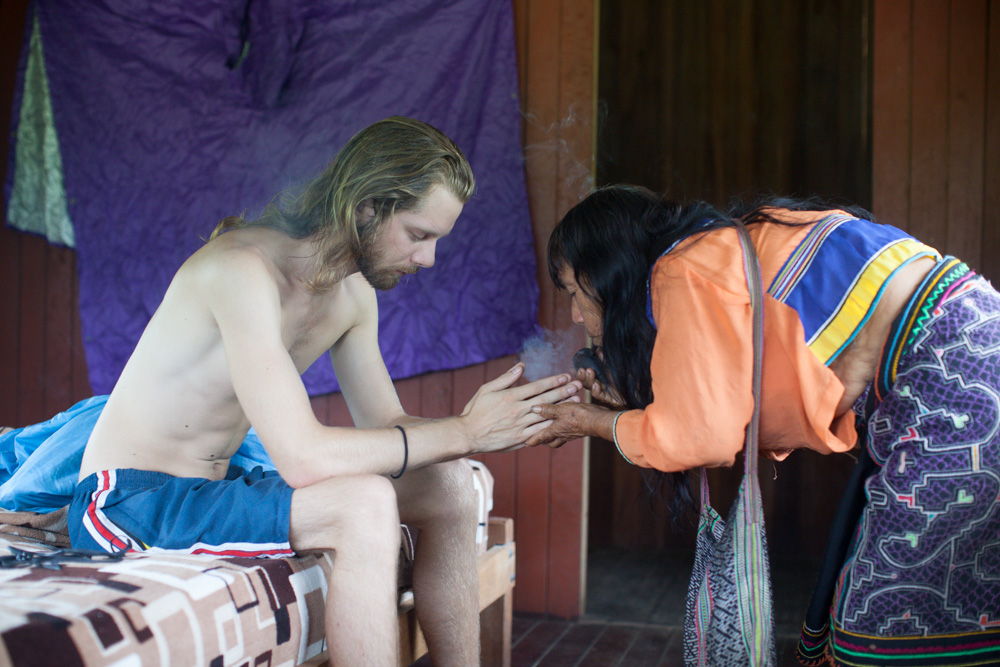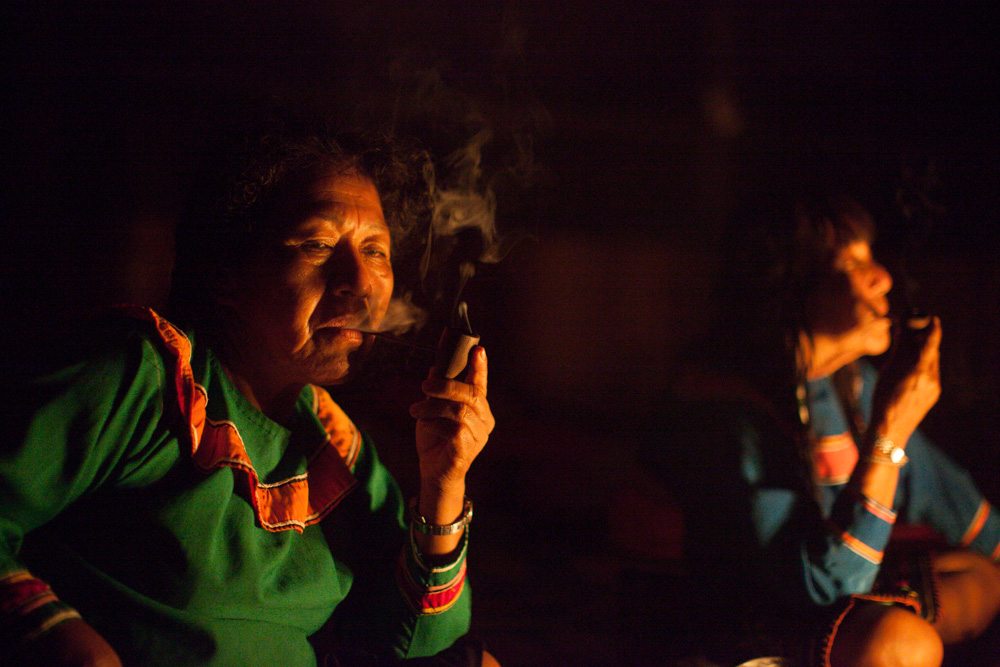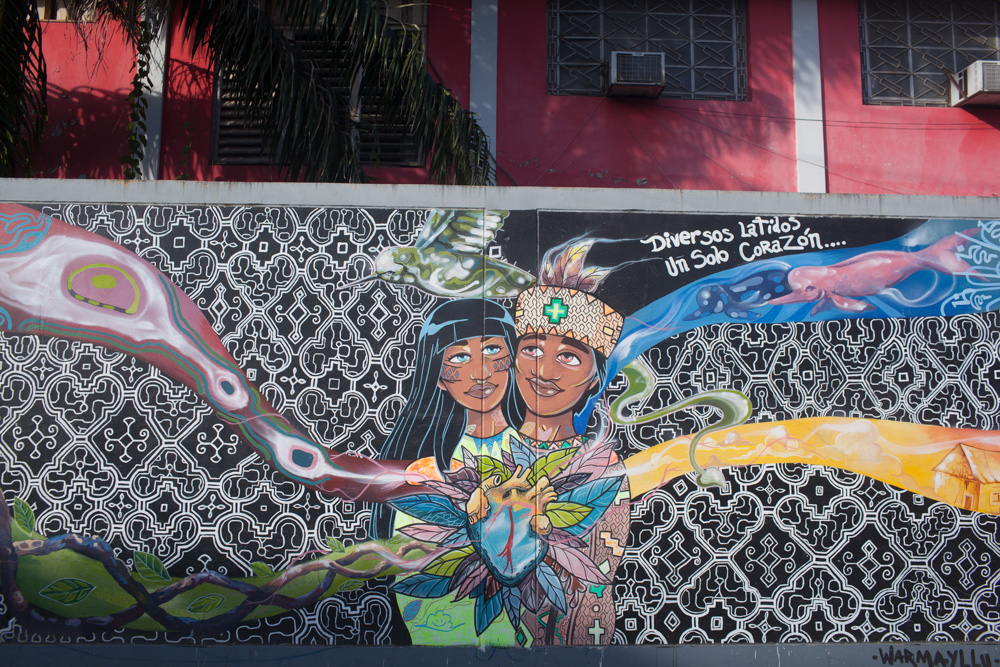I started my adventure with ayahuasca not by any kind of extraordinary psychedelic, visionary experience, but as concrete physical healing, one not separable however from intellectual and emotional understanding. I had stones in my kidneys and associated pain while pissing, during nearly whole winter, in period that separated two first ceremonies and then until I went to Brasil. Finally, there in the jungle, standing in toilet, watching rain pouring outside, I realized that I am urinating without any problem, just as the rain in front of me.
That flow, circulating movement, is life. When it is broken for some reason, when the circle is not complete, when our blockages, stiffness, our lifestyle choices affect it, decay and degeneration begins. There is no flow in death, no juices running in dry stick.
Same thing applies to any nature, the one in us and the one “on the outside¨ alike, this is for example why often great wave of purge runs through the ceremony, pushing people down to their buckets, right when long accumulating throughout the evening clouds finally burst with tropical rain.
We go through same circular journey, harvesting, smashing, cooking hundreds of liters of murky brew, then concentrating it, drinking in the night and puking it out with what needs to be purged, emptying those buckets afterwards under trees where new vine grows.
Some have it hard. Having read a lot before coming here, they are suprised to have several ceremonies without vomiting, without visions appearing. The block is strong in a culture so focused on strenghth and fixed truths rather than surrender and flexibility.
Now the dry season should already be over. And yet our tanks are empty, water shortage, distruption in the cycle. We have giant pots of ayahuasca drying out, waiting to be cooked, and no water coming. In the time of climate change, the ones to first feel its effects are those who live like us, in tune with elements, not sheltered from them by brute force of money and machinery, petrol and pumps, able to postpone the direct consequences.
This happening in the very same period in which we are supporting indigenous Achuar communities fighting consequences of petrol contaminating their waters ( https://web.facebook.com/notes/psychonauta-foundation/to-give-back-petrol-contamination-in-amazon/2451079018477235/ ) shows us clearly, Standing Rock is here too, and it is coming to you. It also shows again the meaning of the medicine work.
If you are able to see that and do the work in the internal universe within you, you will have no doubt what matters in the world out there.

